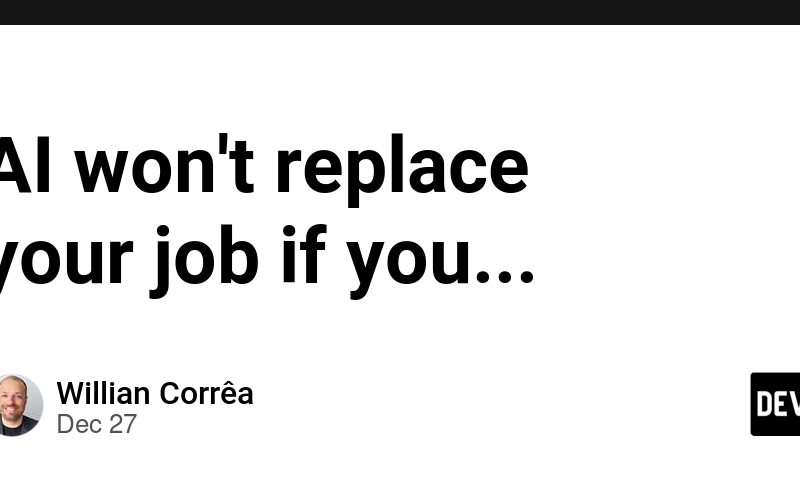The technology industry has never been static. From the early days of computing, where vacuum tubes and punch cards reigned, to the modern era of cloud computing and artificial intelligence, the only constant has been relentless change. As we inch toward 2025 and beyond, a new wave of anxiety is gripping the community of software engineers: Are we heading toward a future where our work becomes obsolete? Can artificial intelligence write all the code for us and, in turn, eliminate the need for software engineers altogether?
Sensational headlines proclaim that software engineering will be replaced by AI systems that can generate code instantly, making human involvement unnecessary. Silicon Valley folklores have even spurred debates about whether aspiring engineers should pivot to another field. The truth, of course, is far more nuanced. While AI is undeniably transformative, it’s not a harbinger of doom for software engineers; it’s an opportunity — albeit one that requires adaptability, foresight, and a willingness to reinvent oneself.
it becomes clear that this moment is actually calling on software engineers to do what they’ve always done: solve problems, innovate, and adapt.
In the face of these mediatic prophecies, it’s tempting to feel paralyzed or frantic about how to keep your skills relevant. But if you break down the challenge, it becomes clear that this moment is actually calling on software engineers to do what they’ve always done: solve problems, innovate, and adapt. The future of software engineering is not about passively waiting to see if you’ll be replaced but about strategically positioning yourself to leverage AI and all emerging technologies to your advantage.
Software engineers who concentrate solely on a particular framework or language often find themselves scrambling when trends shift — just as once-in-demand WordPress or Fortran developers did when newer approaches took center stage. Frameworks such as React/NextJS may dominate headlines and job postings today, but in a few years, the industry will — for certain — pivot again to something entirely different. The underlying, timeless skill that will keep an engineer relevant and marketable is problem-solving — being able to dissect a challenge into its fundamental parts and devise efficient, innovative solutions. Frameworks and languages are tools: valuable as they are, they should serve the problem at hand rather than dictate an engineer’s professional identity.
This article aims to give you a comprehensive outlook on how to thrive in a tech market that’s rapidly shifting under the influence of AI. We’ll look at the big questions to ask yourself, and we’ll reflect on the industry’s evolving demands. We’ll discuss everything from core fundamentals in software development to the expansive skill sets that will help you remain indispensable. You’ll see that while AI might change how code is generated, there will still be an entire universe of tasks that only creative, holistic, and ethically-minded humans can handle. If you’re looking for a roadmap to stay relevant, read on.
Read the full article at https://medium.com/@wgcorrea/staying-relevant-in-an-era-ai-advancements-a-2025-and-beyond-playbook-for-software-engineers-ec2e8caa06e9
Source link
lol

